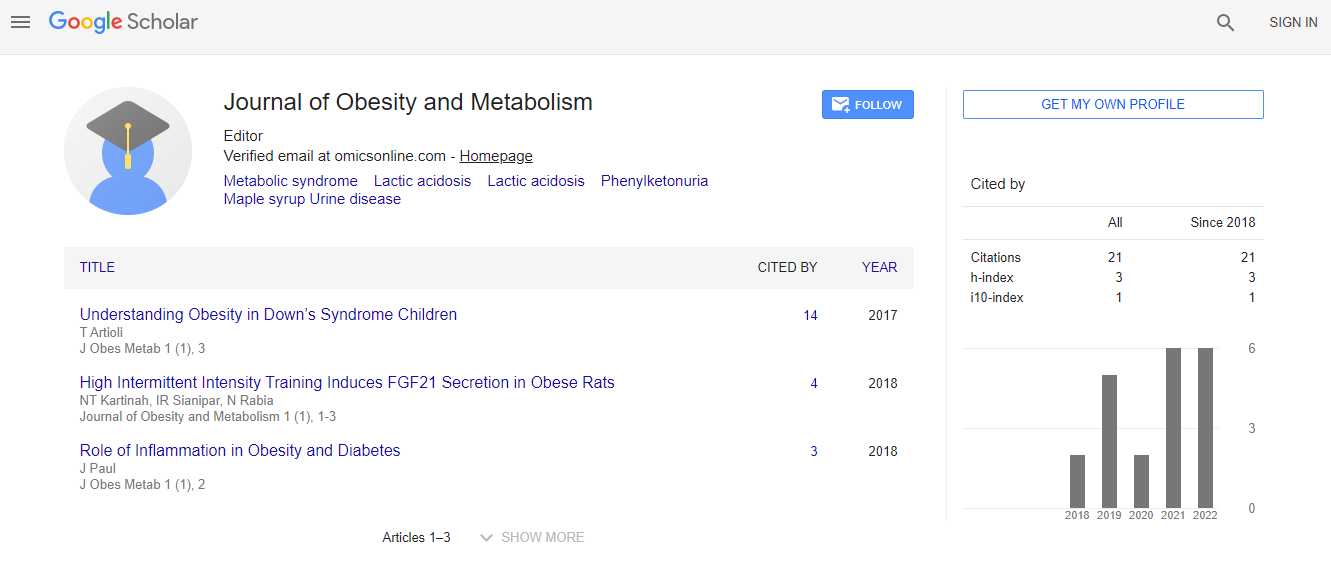Our Group organises 3000+ Global Conferenceseries Events every year across USA, Europe & Asia with support from 1000 more scientific Societies and Publishes 700+ Open Access Journals which contains over 50000 eminent personalities, reputed scientists as editorial board members.
Open Access Journals gaining more Readers and Citations
700 Journals and 15,000,000 Readers Each Journal is getting 25,000+ Readers
Google Scholar citation report
Citations : 24
Journal of Obesity and Metabolism received 24 citations as per Google Scholar report
Indexed In
- Google Scholar
- RefSeek
- Hamdard University
- EBSCO A-Z
- OCLC- WorldCat
- Publons
- Euro Pub
- ICMJE
Useful Links
Share This Page
Special Issue Guidelines
| Proposal Preparation |
| OMICS International welcomes proposals for creating special issues that fall within the scope of the Acute and Chronic Disease Reports published by OMICS. The special issue aims at exploring new, relevant, and most compelling dimensions in the field of Addiction research and therapy that missed a mention in the journal on a regular basis. |
|
|
All proposals should be submitted to www.scholarscentral.org/submissions/obesity-metabolism.html o r send as an e-mail attachment to the Editorial Office at manuscript@omicsonline.org |
| Role of EB Members |
|
| Once a proposal has been accepted by the EB members for creating a special issue, the corresponding guest editors will be responsible for handling and processing of the special issue articles. |
| Role of Guest Editor(s) |
|
| Submission Process |
|
| Once accepted and published, all special issues will be released under an open access system through OMICS International and will be freely available for reading, downloading, and printing. |
| For further information on special issue guidelines and submission process, please contact manuscript@omicsonline.org |

 Spanish
Spanish  Chinese
Chinese  Russian
Russian  German
German  French
French  Japanese
Japanese  Portuguese
Portuguese  Hindi
Hindi 